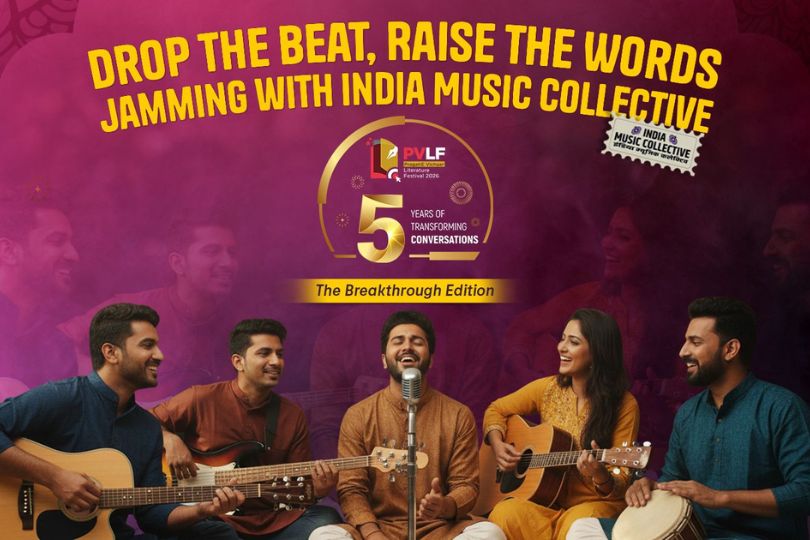Interview with Urvashi Butalia- Director, Zubaan | Publisher | Writer
on Mar 09, 2023
 (2) (1).jpg)
Urvashi Butalia is a publisher and writer. Co-founder of Kali for Women, India’s first feminist publisher, and now director of Zubaan, she is also author of the award-winning oral history of Partition, The Other Side of Silence: Voices from the Partition of India .
Frontlist: You started your publishing career along with Ritu Menon when you
established Kali. Today Zubaan Publishing House is a separate entity.
How’s Zubaan Books different from Kali and Women Unlimited?
Urvashi: So, Zubaan is essentially a child of Kali. When Kali shut down in 2003, we created two publishing houses out of it- Women Unlimited and Zubaan. Like all children, Zubaan is somewhat like its parent and somewhat different. We continue Kali’s excellent list and publish similar books, both academic and general. In addition, we created Young Zubaan, an imprint for books for young adults and children. But also, importantly, Zubaan tries to keep up with the times, to publish with care and attention to the voices of marginalized people, especially women, queer, trans, Dalit, and other marginalized identities. We also support our work through our NGO, which reaches out the findings of our publications more widely through different media. And finally, we publish more books than Kali did – so one of the things that the closing down of Kali made clear to us was that there was room in the market for many more books on women.
Frontlist: This year, International Women’s Day is based on the 'Break the Bias' theme. Why is it significant to prevail feminism in society?
Urvashi: Because any society in which feminism prevails is a better society, for it recognizes the importance of equality, equity, and dignity.
Frontlist: It’s been 19 years since the Zubaan Books’ inception. How do Zubaan Books bring the Feminism movement to initiate change in women’s lives, and also, how do they support the women writers across India?
Urvashi: So it’s difficult for us to say if our books bring about a change in women’s lives, and I would be reluctant to make that claim. However, there is no doubt that books are important in our lives and especially in the lives of women, for women have traditionally been denied access to knowledge. So the best we can do is to provide that knowledge, in the best form we can, and to ensure it gets into as many languages as it can, and then see what it holds for women. Our task is to put out the knowledge in the world, and then, of course, it is for women to see how and whether it helps them.
As to writers, we do our best to support them in their work – we offer workshops and discussions on writing, we seek out writers from marginalized communities, and I think just the fact that feminist books can be published and can make their way into the world, that has to be encouraging for writers, especially young writers from marginalized communities.
Frontlist: Leftist, Feminist, or Liberal. What suits your character the best?
Urvashi: I would normally be very reluctant to make this kind of choice of one thing or the other. But in this case, I have no hesitation. I will loudly and strongly say ‘Feminist’.
Frontlist: ‘Equality of opportunity’ or ‘Equality of outcome’. Kindly share your
thoughts on this.
Urvashi: I’m not entirely sure what you mean by this. To me, they just sound like catchwords without much meaning. I think equality of opportunity is desirable, but it will not come by itself. We have to have substantive equality in place before we can even begin thinking of it. As to equality of outcome, I’m afraid I don’t understand what you mean by it. How can outcomes be equal except in log frames and meaningless charts?
Frontlist: What is the meaning of empowered women, according to you?
Urvashi: Nothing, empowerment is a meaningless word that has been imposed on us by the State. You cannot ‘empower’ women. They’re not inert people just waiting around for someone to come and empower them. I think women are strong and resilient. Instead of pretending that you are helping them by empowering them, recognize them as individuals with rights, needs, desires of their own. They will do the rest themselves.
Frontlist: We at Frontlist have been working with multiple publishers and reckon the women's presence in the Publishing world is negligible. Therefore, what are you doing in this context to change?
Urvashi: You are completely wrong in this. I don’t know what you are basing your assumptions on. It is true that in the early seventies – the time when women of my generation came into publishing, their presence was negligible. Indeed, you could count the number of women in publishing on the fingers of two hands. And they did not have the best jobs. Since then, hundreds of women have come into publishing, at all levels, in editorial, marketing, sales, production, digital. They are doing wonderfully and much better than men. The control of content in most publishing houses is with women. Look at all chief editors, and you will see the truth of what I am saying. Men may control finance – by and large – but it’s the women who control intellectual development, and you can decide for yourself which is better. And look at the independent publishing houses headed by women and what fantastic work they are doing: Tara, Tulika, Stree, Women Unlimited, Yoda, Pickle Yolk Books, Yatra Books, Zubaan, Eklavya, and so on. I think you need to relook at the data you are basing your assumptions on. Perhaps there are not as many women in publishing as men, but that is true of any profession – not because women don’t want to be there, but because it has always been a man’s world, and they make sure the workplace is hostile to women. As I understand it, you are a group of women, so perhaps you should question this rather than taking it as a truth that the presence of women in publishing is negligible!! Sorry, but this kind of untruth really annoys me.
Frontlist: The rising cases of covid have struck print book sales. How does it affect the sales of Zubaan Books?
Urvashi: It affects our sales very badly, as the absence of public presence and the closure of shops, etc., has meant that book sales are really down. Our earnings from the sale of books are down to about 15-20 percent of what they were pre-pandemic, and I have no idea when we will even begin to recover.
Frontlist: Considering our first-hand experience, the Indian Publishing Industry has as much nepotism as seen in Bollywood. What do you think?
Urvashi: Really? I’m not sure where your first-hand experience comes from though you don’t say. But anyway, here is what I think. It is true that until some years ago, many family-owned publishing houses had the children or grandchildren of the founders almost naturally move into the profession. One of the consequences of this was that there was little room for professionalism. Today this has begun to change even that generation that came in through their parents feel the need to scale up their skills, so they are learning something. Then, another thing that impacted this was that there are no clearly laid pathways to enter publishing – for example, no training courses, etc. So that often leads to a kind of nepotism, not only in terms of the family but also in terms of friends and known people coming in, again this is beginning to change, but slowly. Now, is it more or less nepotistic than Bollywood? I don’t know. I have never had a parent in publishing. I got a job in publishing on my own merit. Anyone I have ever appointed as a publisher has come through the process of a job being advertised and an extensive interview process, and there are other publishers like us. But yes, knowing someone also helps and being the family also does.



.jpg)






.jpg)

.jpg)
.jpg)

.jpg)
.jpg)
.jpg)

.jpg)










Sorry! No comment found for this post.